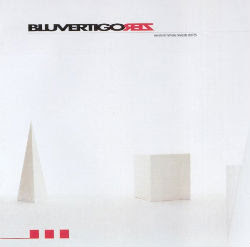(Per una volta, scrivo anche in italiano)
Come avrete forse notato, ho aggiunto nella barra a lato uno spazio che mostra gli ultimi post di altri blog riguardanti la musica italiana. Questo mi dà l'occasione per una piccola riflessione/riassunto.
Quando ho dato il via a questo download-blog, nell'aprile 2008, ce n'erano pochissimi dedicati espressamente alla musica nostrana. Che io ricordi, gli unici ad avermi anticipato sono stati
Italian folk music,
Orrore a 33 giri,
7'' from the underground e l'indimenticabile
Anni di piombo, anni di pailettes, purtroppo "morto" presto. Erano tutti abbastanza settoriali, quindi avevo gioco facile a pubblicare album che non fossero già reperibili nella blogsfera.
Sono passati solo due anni e mezzo, ma il panorama è cambiato radicalmente; e in meglio, per una volta. Oggi come oggi, conto dieci blog attivi dedicati esplicitamente alla musica italiana - e sono sicuro di essermene perso qualcuno. La maggior parte si occupa di periodi specifici, o manifesta una netta predilezione per alcuni generi (anche il mio, alla fine della fiera, non è che uno specchio dei miei gusti); messi tutti insieme, però, coprono uno spettro veramente ampio di settori. I blog sono aggiornati con frequenza, ma la cosa più sorprendente è la capacità che hanno di portare alla luce continuamente dischi rari e dimenticati. Io passo un bel po' di tempo a spulciare liste su internet, o cartelle di file in share sul p2p, per scoprire nuovi (vecchi) dischi italiani, ma puntualmente quando faccio una visita a uno di questi blog mi imbatto in cose di cui ignoravo totalmente l'esistenza - e mi domando: "Ma questo dove diavolo l'ha trovato!?". Il fatto è che ognuno ha i suoi canali preferenziali: blog come
The Breakfast Jumpers o Indieitalia (da poco chiuso, ma non per questo dimenticato) hanno sviluppato contatti con molti artisti indipendenti e netlabel attuali; altri blog sfruttano la loro amicizia diretta con artisti del passato, o saccheggiano le fiere del vinile in cerca di rarità da "rippare", o consultano enormi archivi personali di fanzine... Questa varietà e costanza nelle scoperte è la cosa che più mi entusiasma della situazione attuale.
Un piccolo aneddoto la dice lunga sulla "rivoluzione" accaduta nell'ultimo paio d'anni. Non sono mai stato un gran collezionista di musica "fisica" (cd, vinili, cassette o che altro) e la grandissima parte delle cose pubblicate sul mio blog viene dal p2p. Uno dei pochissimi album che ho "rippato" personalmente è stato l'omonimo dei La Crus: non riuscivo a trovarlo in rete in nessun modo, e ho finito per comprarlo, appositamente per lo scopo. Ora, tra blog e p2p, trovarlo è decisamente più facile. Ma, soprattutto, i dischi che proprio non riesco a trovare in alcun modo sono ben più rari e sconosciuti!
Ogni tanto, mi viene il timore di aver pressoché esaurito le scorte riguardo a questo o quell'altro periodo, e temo di dover ripiegare su dischi di seconda scelta o iniziare a ripetermi assai di più con generi e artisti. Poi però mi faccio un giro sugli altri blog e vedo che traboccano di cose stuzzicanti di cui non so niente di niente. Così mi convinco che ce n'è ancora quanta se ne vuole di musica da riscoprire, e mi ributto nella ricerca...
Temo però che difficilmente mi passerà la convinzione che i nostri anni novanta musicali siano stati un'era rozza e oscura :P
ps. Fate caso a
Ondarock! A breve arriverà un ampio speciale sui blog più legati alla nostra attuale scena indie!
As you may notice, I've added to the blog sidebar a dynamic box summarizing the latest posts of other great blogs dealing with Italian music. This suggests a small reflection & recapitulation.
When I started this download blog, back in april 2008, there were really very few expressely focused on the rediscovery of Italian music. The only ones to precede mine were, for what I can recall
Italian folk music,
Orrore a 33 giri,
7'' from the underground and the extraordinary, but short-lived,
Anni di piombo, anni di pailettes. All of them were pretty sectorial, so it was very easy for me to share music which wasn't available yet on the blogsphere.
Just two years and a half have passed, but the landscape has radically changed; and, for one time, for the better. Today, I can count ten active download blogs strictly dedicated to Italian music - and I'm sure I'm missing some. Most of them deal with specific periods, or show a strong predilection for some genres (mine too, after all, is definitely a mirror of my tastes), but considered in the complex they cover a very broad part of Italy's buried treasure-rooms. They have a consistent post rate, but the most amazing thing is their ability to bring to light without cess really rare and obscure records. I spend a considerable amount of time skimming lists on the internet, or shared folders on the p2p network, to discover new (old) Italian stuff, but everytime I visit one of these blogs I find something I was totally unaware of, and I ask myself: "Where the hell did they find
this!?". The fact is that each one has its own channels: blogs like
The Breakfast Jumpers or the recently-closed (but unforgotten) Indieitalia got in touch with many contemporary independent artists and netlabels; other blogs exploit their direct acquaintancy with artists from the past, or plunder vinyl fairs in search of rarities to rip, or consult their old fanzine archives... This variety and continuity of discoveries is the one thing that makes me enthusiastic about the current situation.
There's a small anecdote which tells much about the revolution occurred in just a few years. I've never been a very fond collector of "physical" records (cds, vinyls, cassettes, or whatever), and almost all the albums posted on my blog come from the p2p. One of the very few ones I ripped personally was the self-titled release by La Crus: I had to buy the cd for the purpose, because I could not find it on the internet in any way. Today, thanks to the other blogs and the diffusion on the p2p, finding that record is much easier. And the albums I unsuccsfully struggle to find are much rarer.
Sometimes, I think I've almost "run out of gas" with some periods, and I fear I have to fall back on tier 2 records, or get more repetitive with artists and genres. But then I turn to some other blogs, and I see they have plenty of thrilling stuff I don't know about. That convinces me there's still a lot to discover, and spurs me to go on searching...
But I'm afraid I'll always think that the Nineties were a terrible "dark age" for Italian music, despite all :P
ps. Stay tuned on
Ondarock! A comprehensive survey on the blogs most linked to our contemporary "indie" scene is coming soon!



































